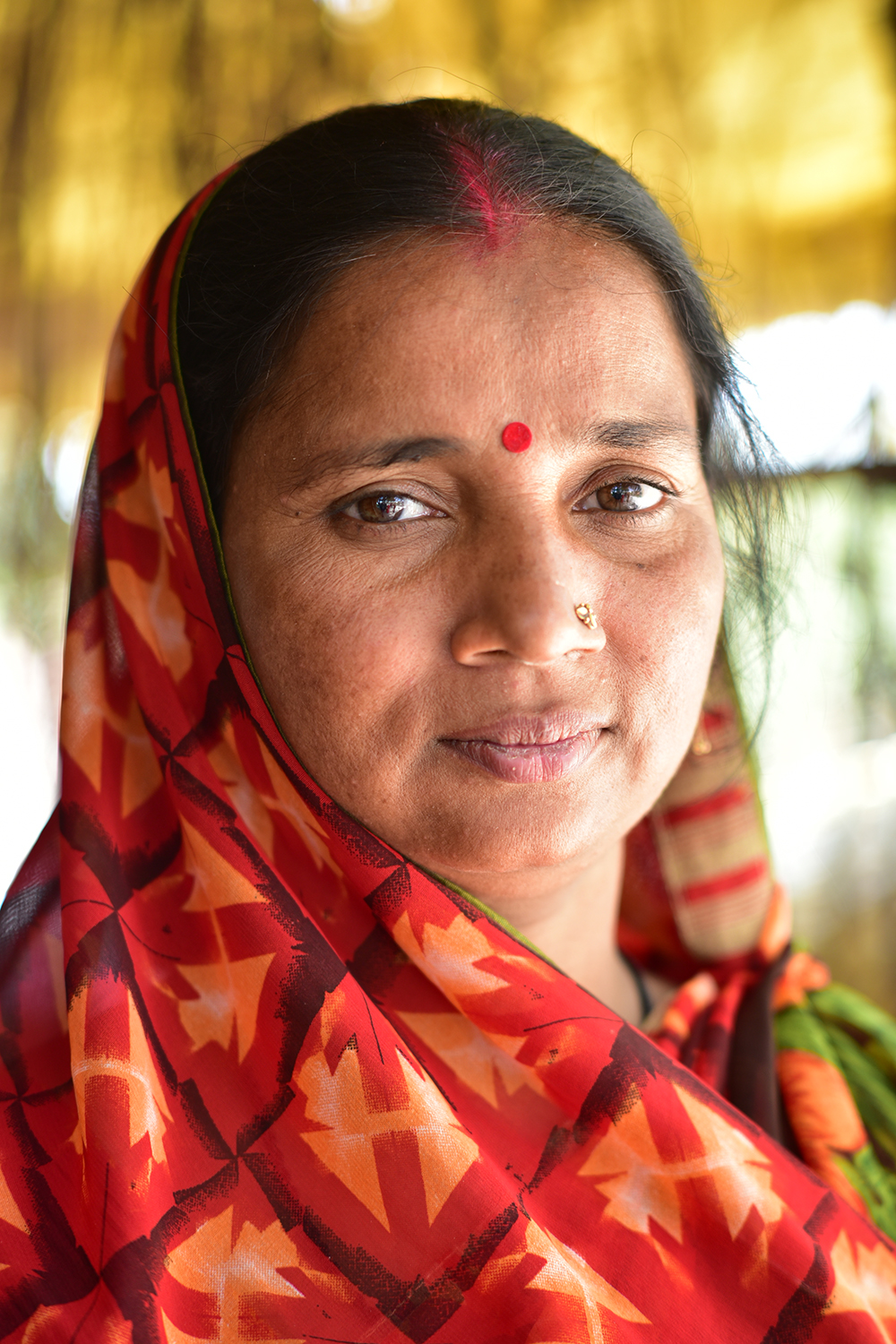Bridging India's healthcare gap
Above: Usha Devi – a Basic Care Provider (BCP) trained with the assistance of Opportunity International Australia. © Matthew Smeal
Training women to work as Basic Care Providers in rural villages in India’s north, is bridging a massive gap between people living in poverty and the health care they desperately need.
A wheat thresher makes a unique sound. A whirring, whistling of the spinning cylinder mixed with the chugging of an old engine and a flapping flimsy belt that connects the two.
The large cylinder is held by fencing wire, suspended horizontally between two worn wooden posts, its raised metal hooks ripping grain from stalks as it reaches speed and the grain stalks are forced down upon it. Apart from the engine, the apparatus is mediaeval in appearance.
The family moves in with bundles of wheat, holding them tightly as they force the heads of grain onto the machine, flipping the bundles over and sliding them back and forth, forwards and backwards, making sure every grain is pulled from the stalk. It is quick work, but the danger is obvious: a slip, a moment’s inattention, a loose piece of clothing could end in catastrophe. The hospital, emergency medical care, transport, are a long way away.
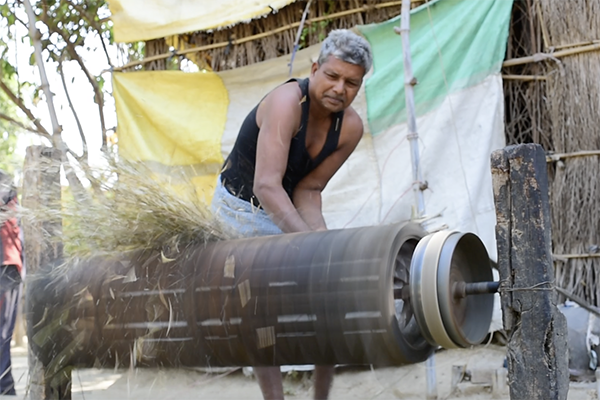
It is in this setting, in rural Uttar Pradesh, India, that Usha Devi finds herself. Usha is a BCP—a Basic Care Provider—not quite a paramedic or nurse, but more than a first aid responder. BCPs provide an essential health service to people living in rural India.
“In a village, a BCP is required because emergency facilities cannot be found,” Usha said.
“If anything happens, a BCP can be found immediately in the village and any primary treatment can be easily provided by the BCP.”
Like all BCPs, Usha’s health journey began as a Community Health Facilitator or CHF, commonly known as community health leaders. But Usha’s journey with Opportunity began even earlier – Usha and her husband were microfinance clients, having taken a small loan for their electronics business selling cameras and video equipment and some whitegoods.
“We were able to do decent work, our children also started studying…it [the small loan] was important for the children’s school admission,” she said. “Now our economic condition has become very good.”
Through the loan process, Usha heard about the health leader program. CHFs learn about general health care including clean water, sanitation and hygiene; nutrition, and menstrual hygiene. Following the training, the health leaders visit different villages, giving talks to the community and spreading good health messages and education.
"...as we started meeting regularly, it became like a family."
Some also become health entrepreneurs, selling items like soap and sanitary napkins, making a little money and alleviating the need for villagers to spend time and money travelling to larger towns to buy such items. Other health leaders, like Usha, become BCPs.
Training people to become Basic Care Providers was a new concept and Usha was in the first batch.
“Because everyone was from three places it all felt very different. But slowly, as we started meeting regularly, it became like a family,” she said.
The training has taken place over three years—three or four days each month—and while basic, it is comprehensive.
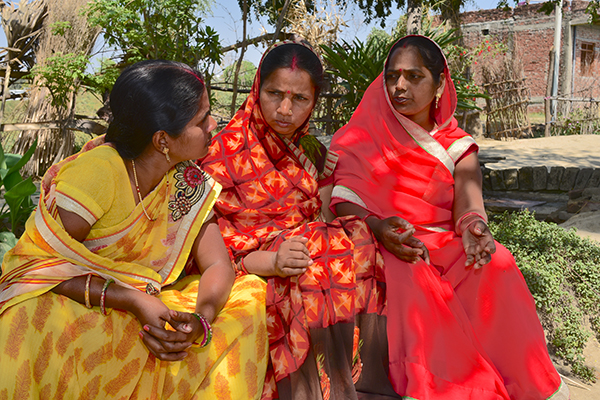
“The training was the nervous system, breathing system, digestive system, cuts and bruises etc.,” Usha said about the training which covers 12 modules about the body and its various systems.
Her role now is to visit different villages to check on people’s health and being the first point-of-contact if someone may have something more serious.
“In the community we see mostly women with leg pain, back ache, and urine problem…and itching in the body [skin infections] and also diarrhoea,” Usha said.
“In many areas it is dirty; eating habits are bad…some don’t maintain cleanliness.”
When seeing a patient, Usha checks the usual signs: blood pressure, heart rate, blood oxygen levels, temperature.
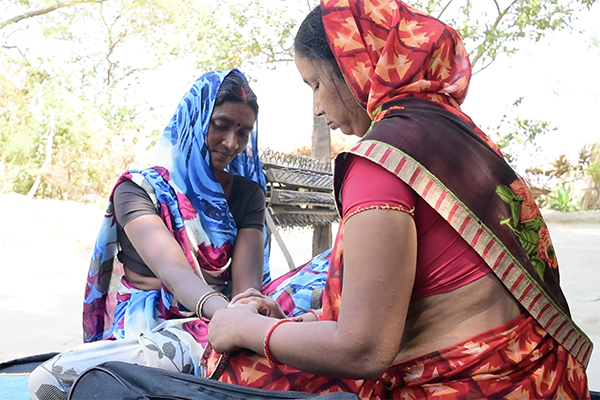
Above: Usha examines a patient, Uttar Pradesh, India. © Matthew Smeal
In matters of basic care, Usha can assist the patient and suggest ways for them to regain health. But if things aren’t normal, Usha is able to refer them to a doctor. To help her navigate that path, Usha has a significant helping hand: technology – more specifically, a tablet.
By typing in symptoms and other health information she receives from the patient, the tablet prompts Usha for specific information and begins narrowing down potential problems and lets Usha know if anything is missing.
“That’s why the tablet is important, if any mistake is made, it promptly tells what information has not been added,” she said. “When we add information in, if we need it again, we can see the information.”
The tablet is a good sense check but also a reassurance to BCPs who need to know when to refer a patient on to a higher level of care.
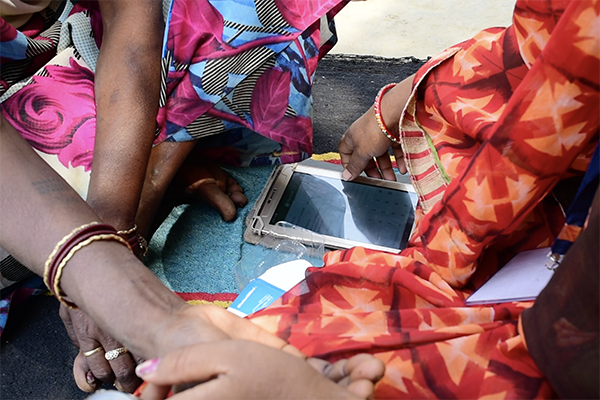
Above: While examining a patient, Usha enters details into her tablet. © Matthew Smeal
Usha mentions a baby girl whom she immediately referred to hospital with a kidney infection and also a villager with a severe cut which she treated at the scene and arranged for them to get further care.
Sometimes the treatment can go against traditional practices. Sometimes, the treatment can also be very close to home.
“It happened to my son,” Usha said.
“He hurt his leg. I was giving him RICE (Rest, Ice, Compression, Elevation) therapy. Lots of people told me to massage the area but I explained that is not what I am doing, that I was giving RICE therapy and then I would take him for an x-ray because it was so painful.”
Thankfully, Usha’s son had only suffered a sprain but seeing a BCP working with knowledge and confidence helps her build trust and acceptance within the communities she visits. It has also done the same in her own home.
To see patients, Usha often needs to travel up to 20km. Nowadays, she usually travels on the back of her husband’s motorcycle. Many Indian men restrict their wives’ independence and while Usha’s husband was initially sceptical, he has become so proud of his wife’s achievements that he now drives her from village to village so she can complete her work – a tremendous example of the empowerment that the BCP training provides.
COVID-19 is affecting us all, but it will devastate vulnerable communities. Even in developed countries, healthcare systems are under enormous pressure – those in developing countries will likely collapse.
Ensuring health leaders and Basic Care Providers like Usha Devi are trained is part of Opportunity’s ongoing commitment to people living in poverty – and it is part of our response to COVID-19.
